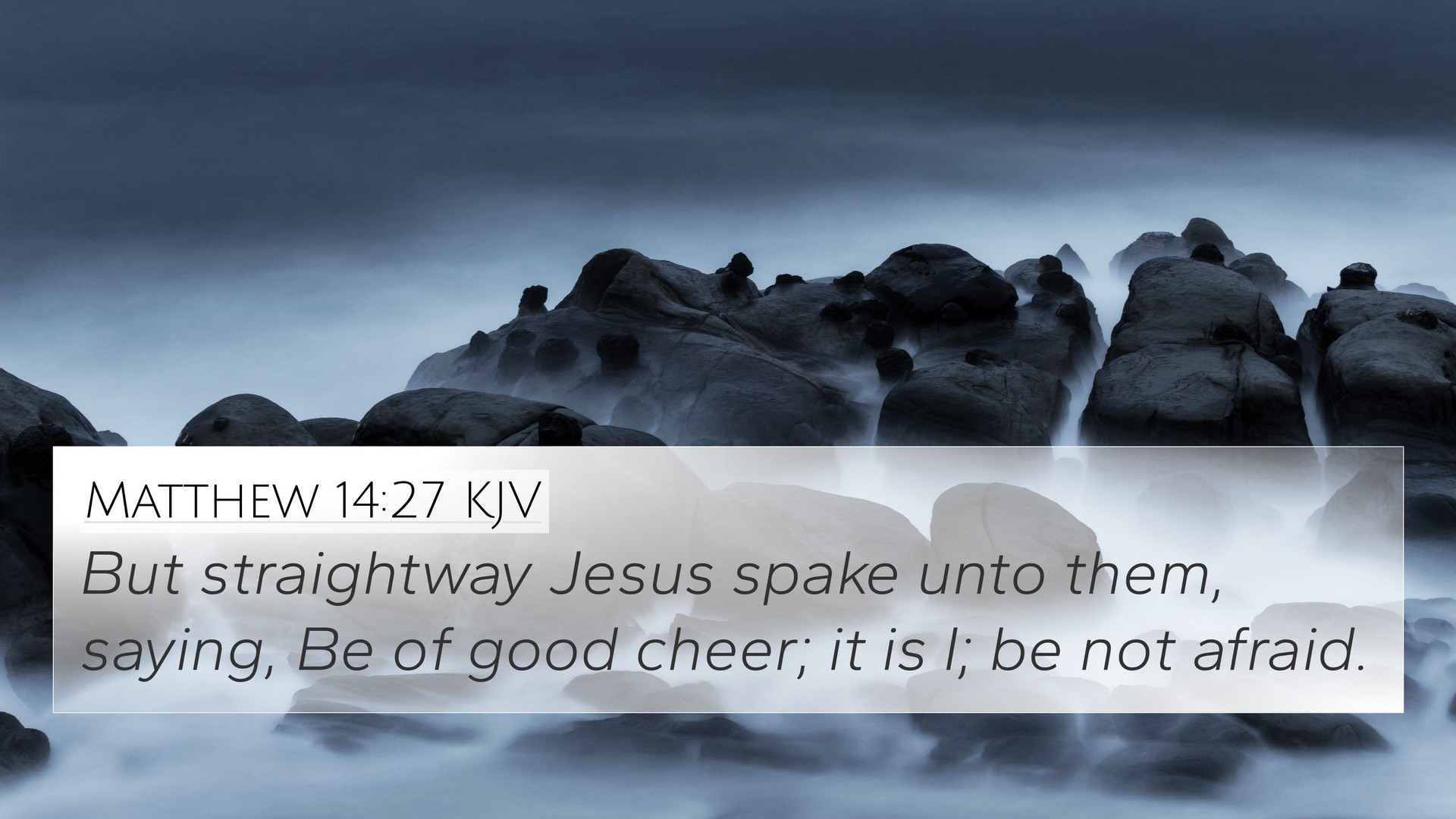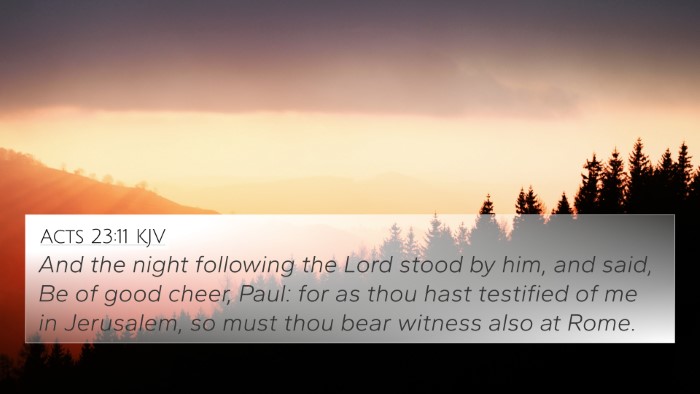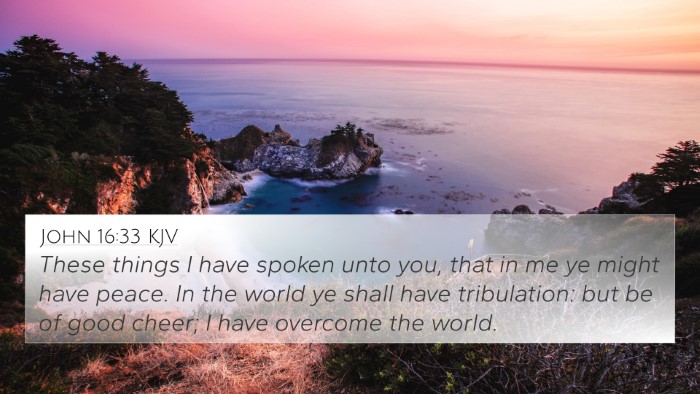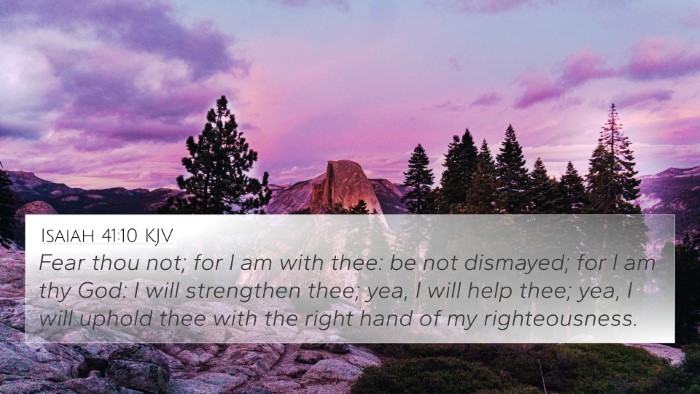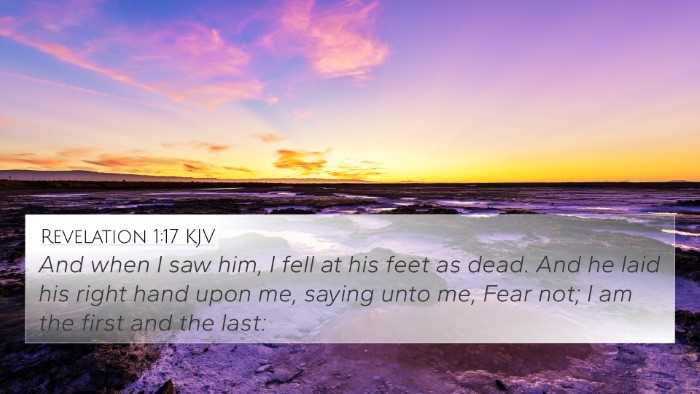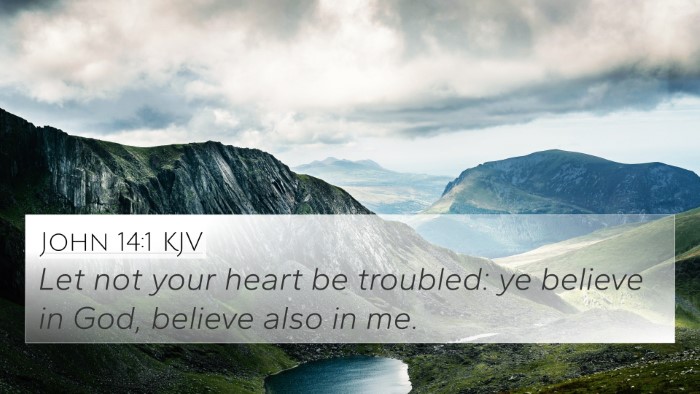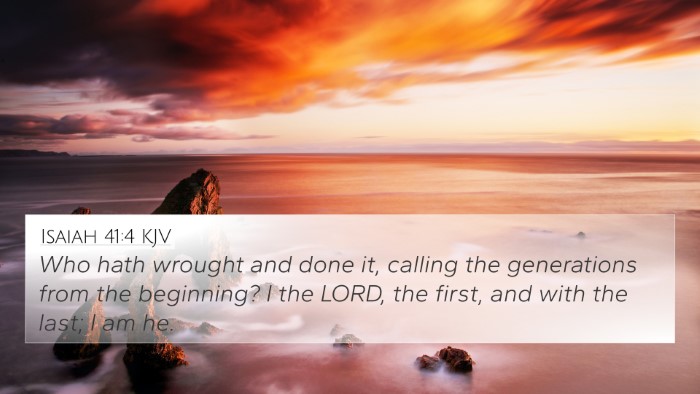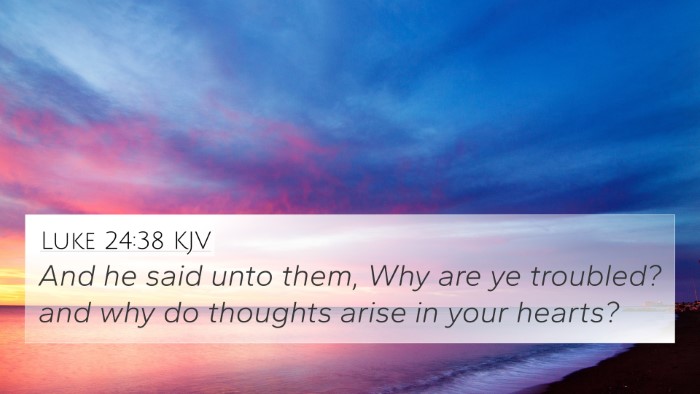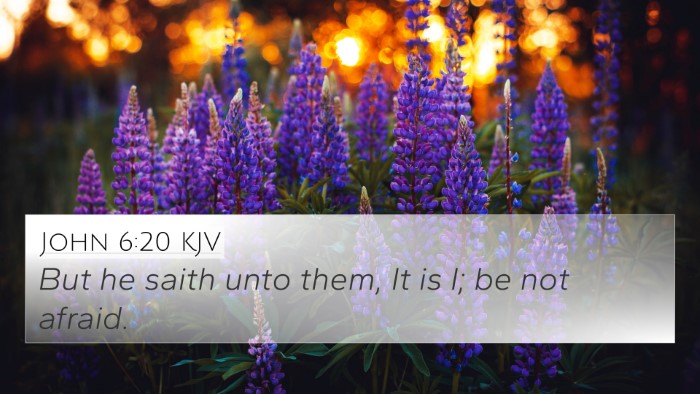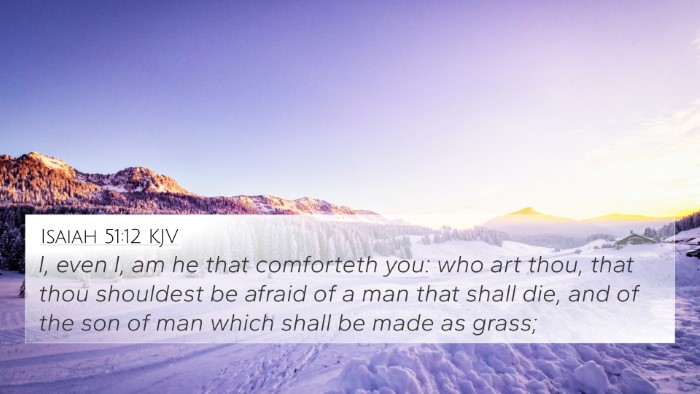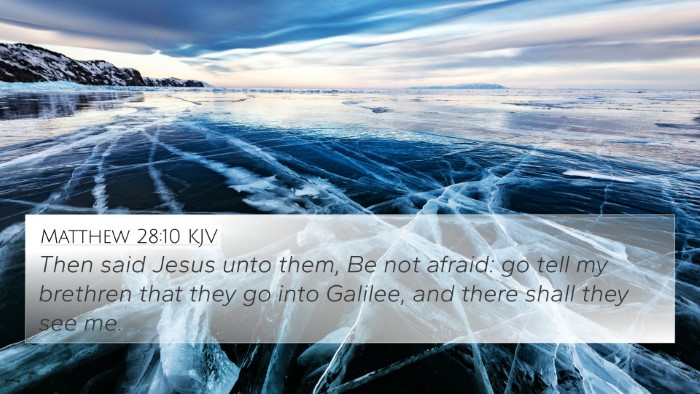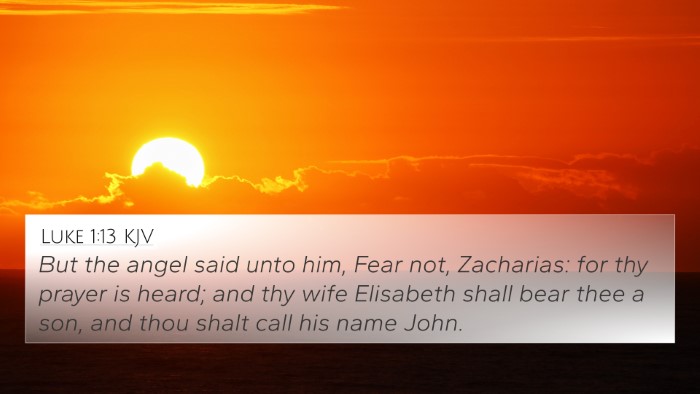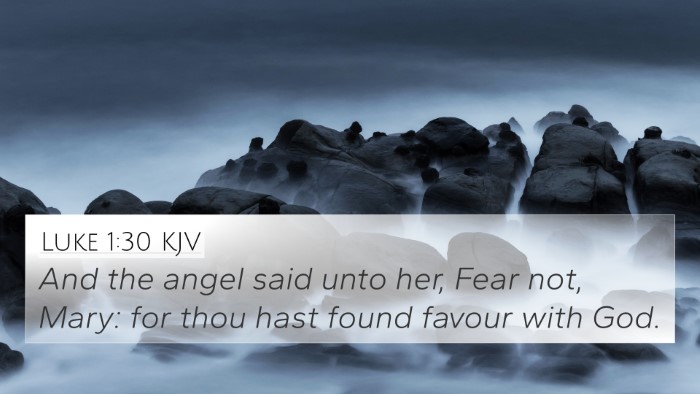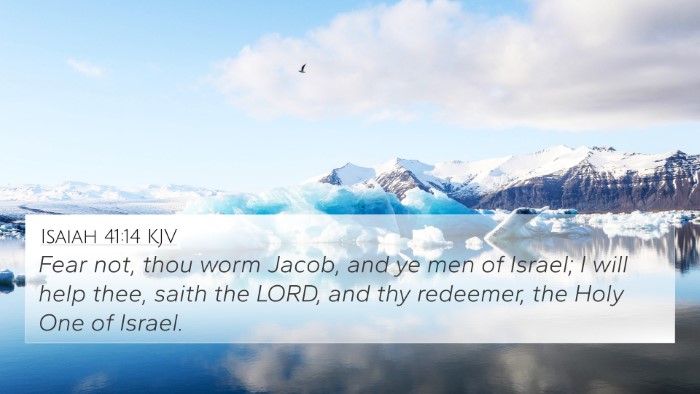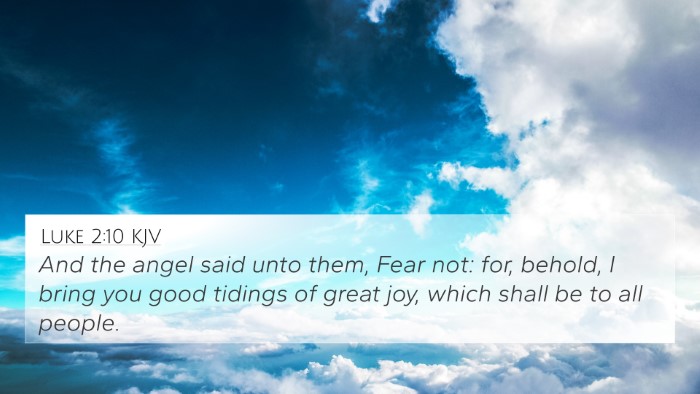Understanding Matthew 14:27
Verse: "But straightway Jesus spake unto them, saying, Be of good cheer; it is I; be not afraid."
Commentary Summary
The verse conveys a powerful moment of reassurance from Jesus to His disciples during a time of fear and uncertainty. The context surrounds the disciples encountering Jesus walking on water, and their initial fear where they thought He was a ghost. His immediate response, "Be of good cheer; it is I; be not afraid," encapsulates themes of divine presence and encouragement.
Key Insights from Public Domain Commentaries
-
Matthew Henry: Highlights Jesus' gentle compassion toward His disciples, emphasizing His presence as a source of comfort. Henry notes that Jesus does not simply dismiss their fear but acknowledges it while guiding them toward faith.
-
Albert Barnes: Focuses on the theological implications of Jesus stating, "It is I," which can be interpreted as a revelation of His divine identity. Barnes suggests that this phrase encourages believers to trust in Jesus amidst life's storms.
-
Adam Clarke: Comments on the construct of human fear in the face of the unknown. Clarke posits that Jesus' command to "be of good cheer" serves not just as encouragement but as a reflection of faith-based assurance that Jesus is present even in troubling times.
Biblical Cross-References
This verse connects with several other passages, enhancing our understanding through thematic and contextual connections:
- Isaiah 41:10: "Fear thou not; for I am with thee..." – A direct reassurance of God's unfailing presence.
- John 16:33: “In the world ye shall have tribulation: but be of good cheer; I have overcome the world.” – Striking parallels between Jesus' encouragement and His ultimate victory.
- Luke 12:32: “Fear not, little flock; for it is your Father's good pleasure to give you the kingdom.” – Emphasizes the protective concern Jesus has for His followers.
- Mark 6:50: "For they all saw him, and were troubled. And immediately he talked with them, and saith unto them, Be of good cheer: it is I; be not afraid." – A direct account of the same event narrated in a different Gospel.
- Philippians 4:6-7: "Be careful for nothing; but in every thing by prayer and supplication with thanksgiving let your requests be made known unto God." – Paul echoes the principle of seeking peace through faith.
- Romans 8:31: "What shall we then say to these things? If God be for us, who can be against us?" – A resonant affirmation of divine support.
- Psalm 27:1: "The LORD is my light and my salvation; whom shall I fear?" – Affirms the idea of trust and confidence in God's protective nature.
Thematic Connections
Examining Matthew 14:27 through thematic Bible verse connections, we identify a few key motifs:
- The Presence of God: The theme of God's presence is critical in both testaments, reminding believers that they are not alone in their trials.
- Encouragement in Fear: Similar exhortations found throughout scripture encourage believers to maintain peace and courage amidst fear.
- Faith Over Fear: This theme runs deep; biblical narratives consistently show that faith in God is the antidote to fear.
Cross-Referencing Tools and Methods
For those looking for deeper insights and connections in scripture, here are some recommended approaches:
- Bible Concordance: Use a concordance to locate keywords related to themes of comfort and assurance across the Bible.
- Bible Cross-Reference Guide: Invest in a cross-reference guide that lists related verses by theme, aiding in comparative analysis.
- Cross-Reference Bible Study: Engage in study methods that focus on linking verses from different books that relate to similar themes, enhancing understanding.
- Bible Chain References: Explore chain references that create a narrative linking various scriptures on encouragement and divine presence.
Conclusion
Matthew 14:27 is rich with meaning, encapsulating the central Christian message of comfort and the assurance of faith amidst fear. By engaging with this verse, believers can find profound insights and connections with other scriptures that affirm God's continual presence and support throughout life's challenges. The act of cross-referencing not only deepens understanding but fosters a stronger faith in God's ability to calm our storms.
